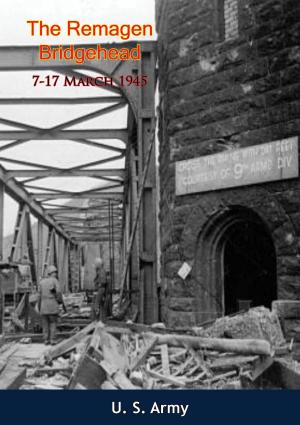| Author: | Kenneth Cooke | ISBN: | 9781786253170 |
| Publisher: | Lucknow Books | Publication: | November 6, 2015 |
| Imprint: | Lucknow Books | Language: | English |
| Author: | Kenneth Cooke |
| ISBN: | 9781786253170 |
| Publisher: | Lucknow Books |
| Publication: | November 6, 2015 |
| Imprint: | Lucknow Books |
| Language: | English |
“The S.S. Lulworth Hill, a freighter bound home for England...was torpedoed by a German submarine on March 19, 1943, off the west coast of central Africa. The ship’s first officer and 13 crewmen reached life rafts. Fifty days later, when a British destroyer steamed into view, two men still lived. One survivor died shortly after the rescue. The remaining man, who was the ship’s carpenter, tells the story.
Kenneth Cooke, ends his preface with a line that might have been written by Conrad: “And there is no one left now to tell me I have remembered badly.” It is the musing of a man who sat helpless while sharks ate the bodies of twelve raftmates, and who calculated the dwindling strength of those left alive, as they openly calculated his, in the hope of gaining extra rations. After 17 years, the inexplicable and awesome fact of his survival still obsesses Cooke. No one who reads his book will need to ask why.
After the 14 men reached their raft, the first officer calculated the food supply to last for 30 days...What follows is a catalogue of torments. Tongues swelled and turned black. Sea water and the equatorial sun cut running sores. The feet of a wounded man turned gangrenous. By the 19th day, Cooke, who kept the log, recorded the first death. The body was rolled into the sea; cannibalism was a temptation.
Now and then a flying fish landed in the raft, and Cooke speared a few other fish with a homemade harpoon. Once it rained briefly, and the men greedily licked moisture from the raft’s canvas. Otherwise there was no relief. More men died. The strongest man on the raft went mad, locked two other men in his arms and jumped to the sharks. Cooke, crazed by the groans of a man whose ribs were broken, kicked the fellow to quiet him.
To the author, the book is a riddle: How was he alone able to survive?...The only conclusion is that some men, for some reason, cling hard to life, and that the sea, as Cooke wrote truthfully, does not care.”-Time.
“The S.S. Lulworth Hill, a freighter bound home for England...was torpedoed by a German submarine on March 19, 1943, off the west coast of central Africa. The ship’s first officer and 13 crewmen reached life rafts. Fifty days later, when a British destroyer steamed into view, two men still lived. One survivor died shortly after the rescue. The remaining man, who was the ship’s carpenter, tells the story.
Kenneth Cooke, ends his preface with a line that might have been written by Conrad: “And there is no one left now to tell me I have remembered badly.” It is the musing of a man who sat helpless while sharks ate the bodies of twelve raftmates, and who calculated the dwindling strength of those left alive, as they openly calculated his, in the hope of gaining extra rations. After 17 years, the inexplicable and awesome fact of his survival still obsesses Cooke. No one who reads his book will need to ask why.
After the 14 men reached their raft, the first officer calculated the food supply to last for 30 days...What follows is a catalogue of torments. Tongues swelled and turned black. Sea water and the equatorial sun cut running sores. The feet of a wounded man turned gangrenous. By the 19th day, Cooke, who kept the log, recorded the first death. The body was rolled into the sea; cannibalism was a temptation.
Now and then a flying fish landed in the raft, and Cooke speared a few other fish with a homemade harpoon. Once it rained briefly, and the men greedily licked moisture from the raft’s canvas. Otherwise there was no relief. More men died. The strongest man on the raft went mad, locked two other men in his arms and jumped to the sharks. Cooke, crazed by the groans of a man whose ribs were broken, kicked the fellow to quiet him.
To the author, the book is a riddle: How was he alone able to survive?...The only conclusion is that some men, for some reason, cling hard to life, and that the sea, as Cooke wrote truthfully, does not care.”-Time.







![Cover of the book Tragedy At Honda [Illustrated Edition] by Kenneth Cooke](https://www.kuoky.com/images/2015/november/300x300/9781786255440-qRl4_300x.jpg)







